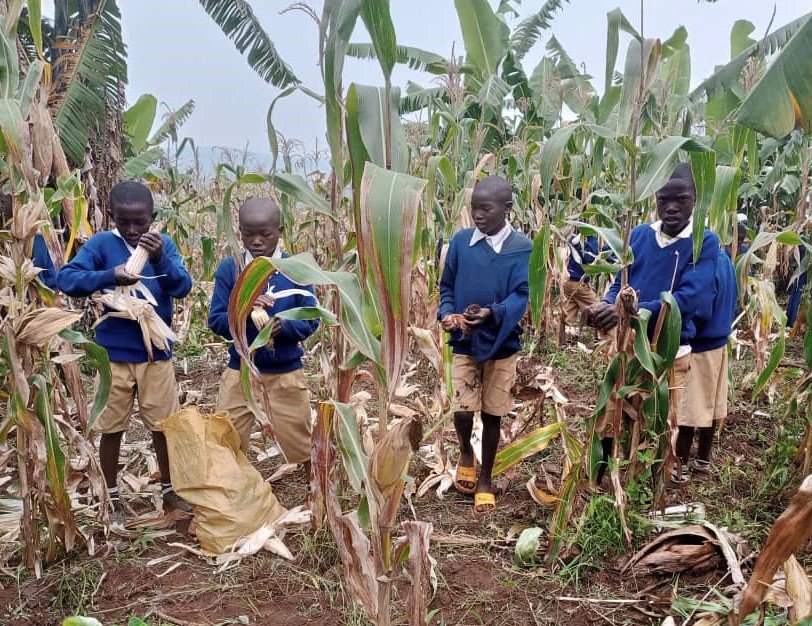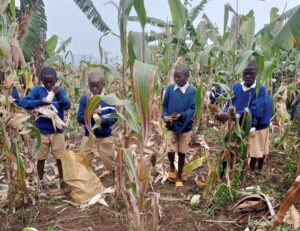Ngara, TZ – Schools’ corn farm harvests and parent contributions sustain school breakfast – Feb 2023

The three schools don’t have sufficient land to harvest enough corn to sustain yearly feeding requirements until the next harvesting season. This made the schools agree with parents to contribute feeding’s corn per child from their home harvests. The first year parents contributed 2 Kgs/ child, which was hard due to not being used to contributing, the second time was 3 Kgs/ child and currently are contributing 5 Kgs / child and the response is very positive. The target is to collect 13,250 Kgs total from 2,650 students for three schools.
SODAT collaboration with the three schools has successfully begun harvesting in February 7.5 acres of their grown corn for feeding at school. The schools planted hybrid corn “Zamseed 606” that are more productive and take a shorter time to mature compared to local corn. The harvest target expectation is 5,850 Kgs total from 7.5 Acres, which will be stored to an emergency stock for closing feeding gap, saving seeds, and value in the market when it is a good to sell corn to buy beans. The cost incurred to produce a kg of corn on the school farms is 300 TZS. This provides breakfast serving costs relief because the current market selling price is 1,000 TZS / Kg of corn in Ngara.

Parents have become the program backbone contributing 5 Kgs of corn per student to the yearly stock for breakfast serving at each school day. Few families might fail to contribute 100% due to some reason like late planting, lite rains or having many children at school, Any feeding gap will be closed from the school harvests using the emergency stock. The parents’ contribution stock is the main serving because its corn comes from several seeds types like GMO, Hybrid and local which are not good for seeds and market, but best for breakfast serving.
SODAT and the school are continuing to encourage parents to contribute 100% of the student feeding for self-sufficient serving breakfast at schools for self-reliance. Assist parents’ productions by inviting government farming officers to educate them about better seeds, storage, and unnecessary costs for GMO seeds that are not good for weather and pests resistant, and cross pollination. This way they can assist families achieve food security and income.

